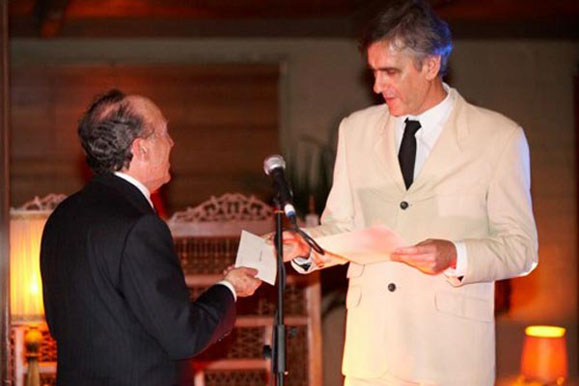LOWEST OF THE LOW: INTRODUCTION
|
When former GoBetween Robert Forster won Australia’s prestigious Pascall Prize for critical writing in 2006, it caused a few ruffled feathers. In a reverse of the cliché that rock critics are just frustrated rock stars, it is equally true that many rock stars are former or closet critics too. Chrissie Hynde, for one, started out as a writer long before she formed the Pretenders; Patti Smith and Morrisey did similar things. There were grumblings among ‘career’ rock critics that Forster was ‘queue jumping’ or a ‘job hog’, a rock star on a sideline and enjoying a carte-blanche with it: Jeez, if we had carte-blanche too, think of what we could do!
No one was more gracious, of course, than Forster himself. “Thirty years in rock’n’roll with no awards,” he said in one interview, “one year of writing, one award.” Forster’s style is much more genteel than rock journalism’s usual run of blood and guts, his tone akin to having high tea with an eccentric maiden aunt, and doubtless this is why he was palatable to the readership of the rather arch Monthly magazine, for whom he wrote a regular music review column starting in 2005. But this is not to downplay the quality of his work. He couldn’t have dreamed, for example, that one of his columns would be a eulogy to Grant McLennan, his lifelong musical partner in the GoBetweens, but after McLennan suddenly and tragically died in 2006, he had to do just that – and the result was beautiful piece that more than deserved its inclusion in the prestigious annual American anthology, Da Capo Best Music Writing. |
|
Certainly, for the Pascall prize, Forster’s win was a win-win. Since its inception in 1988, the prize has largely taken the typical highbrow line that popular culture apart from film is beneath notice; film reviewers and book reviewers dominate the winners' list. On only three occasions prior to 2006 had music reviewers won: one year two shared the award, both classically-oriented; one winner (Andrew Ford, to his credit) is a bit of everything; and only one, Bruce Elder, is a nominal rock critic. But since Elder seems to revel in his role as the great naysayer of Australian rock criticism, its Keith Windschuttle almost, his win could be seen as merely reinforcing highbrow contempt for all things rock, all things apparently boysy and bogan.
The cynical suggested Forster’s win was a sympathy vote due to McLennan’s death, but that was just part of the backstory to all the glamour Forster brought to the Pascall. Literary critic, judging panel-member and former winner himself, Peter Craven, was perhaps letting his slip show, however, when in a very short speech announcing Forster’s gong he said that readers “may not know the work of the particular artist under review,” and that Forster’s “work can be read with pleasure (and instruction) by people who are not especially interested in his subject.” Two years later, the Monthly’s editor herself, Sally Warhaft, told John Birmingham, “He can make you interested in things about which you know nothing and previously didn’t care.” Which all just begs the question: was there anyone involved in all this who knew anything about rock music or writing at all? In 1978, the late Annie Burton, one of the great semi-unsung women of Australian rock journalism, wrote in Roadrunner magazine, in one of the genre’s rare moments of reflection, “A rock writer is acknowledged as the lowest form of journalistic life.” Nearly 40 years later, she is still a long way from legitimacy. For which perhaps we should be thankful. It is part of rock writing’s conception, after all, that it is outlaw. But if even the Pascall prize can now feel the need to pay lip service to the genre – going on to award a subsequent gong to Mark Mordue, albeit not so much for his music as film criticism – then surely a rough mapping out of the genre and its history is overdue, as the following pages will attempt to do. |



